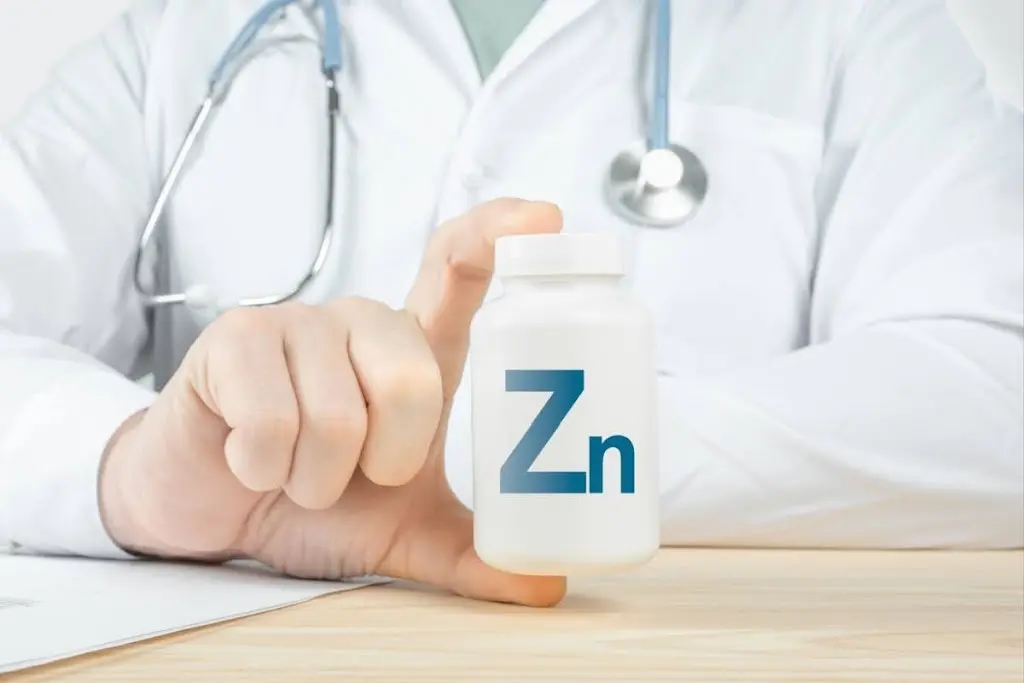The immune system serves as the body’s frontline defense, tirelessly working to ward off illnesses and keep you feeling your best. While many people focus on vitamins like C and D for immune support, zinc often flies under the radar despite its host of benefits. Zinc supports everything from strengthening your body’s natural defenses to speeding up wound recovery.
As part of our commitment to educating and empowering our communities, the Nirvana Healthcare Network is here to spread the word about zinc. We’re taking a deep dive into zinc’s role in boosting immune health and healing, as well as some of the best ways you can incorporate it into your daily life. Plus, with top-of-the-line primary care services, including personalized care coordination and medication management, we’re here to help you every step of the way. Give us a call today with any questions about zinc, or to book an appointment at one of our many locations across Newark and East Orange, NJ.
What is Zinc?
Zinc is a trace mineral that is responsible for various physiological functions, such as cell division, enzyme activity, and protein synthesis. Although required in small amounts, getting enough zinc is fundamental to making sure these biological processes and more function as they should. Unlike some nutrients, however, the body does not store zinc, making regular intake through food or supplements vital.
Zinc and Immune Function
Zinc contributes significantly to immune system efficiency. It regulates immune cells, reduces inflammation, and enhances recovery from infections. These mechanisms help the body respond to and recover from various health challenges that we’ll explore more in depth below.
Regulating Immune Cell Function
Immune cells rely on zinc ions for proper activation and regulation. For example, lymphocyte protein tyrosine kinase, a critical enzyme, requires zinc to effectively inactivate T-cells. These cells identify and destroy harmful invaders, such as viruses and bacteria, ensuring the body’s defenses remain at their best.
Enhancing Production of White Blood Cells
Zinc also aids in the production of white blood cells, which are critical components of the immune response. You see, white blood cells act as first responders, targeting and neutralizing pathogens. Adequate zinc levels guarantee efficient cell activation and optimize immune function to keep infections at bay.
Reducing Inflammation During Infections
“Inflammation serves as the body’s natural response to infection, but too much can actually hinder healing. Zinc plays a crucial role in regulating cytokine production, helping to modulate inflammatory responses and reduce the severity of symptoms during illness. By minimizing unnecessary inflammation, this mineral supports quicker recovery and prevents long-term tissue damage.
The Effects of Zinc in Wound Healing
Beyond immune health, zinc plays a key part in wound healing as it supports cell growth and repair. It accelerates skin regeneration, so that cuts, scrapes, and surgical wounds close completely. Zinc’s role in collagen production also strengthens tissue, improving the resilience of healed areas.
Moreover, healthcare providers often recommend zinc supplementation for patients recovering from surgeries or injuries to enhance their healing process. This underscores zinc’s importance as an integral part of post-injury care.
Signs of You Might Be Zinc Deficient
Not getting enough zinc oxide can have widespread negative effects that can impact several corners of your life. The good news is that recognizing the signs and symptoms of zinc deficiency and taking action can prevent serious complications. Here are some of the most common and noticeable indications of low zinc levels:
- Frequent colds or infections
- Slow-healing wounds
- Loss of appetite
- Hair thinning
- Unexplained fatigue
- Skin issues such as dryness or rashes
If these symptoms persist, consulting a healthcare professional is crucial in addressing potential deficiencies and restoring balance.
Aging and Zinc Deficiency
Human zinc deficiency has been found to increase as we age. This is often due to factors such as reduced dietary intake, decreased absorption, and changes in immune function. Immune responses, wound healing, and overall cellular health also diminish with age, which, as we know, are some of the primary responsibilities of zinc in the body. Research on zinc-deficient subjects has shown a higher susceptibility to infections, chronic inflammation, and slower recovery from illnesses among older adults. Addressing this deficiency through dietary adjustments or appropriate supplementation can significantly enhance quality of life and promote healthy aging by supporting the immune system and other essential functions.
How to Incorporate Zinc into Your Routine
Bringing zinc into your daily life doesn’t have to be complicated. Options include nutrient-rich meals and targeted supplementation to suit your needs.
Zinc-Rich Foods
Dietary sources of zinc are plentiful, offering a natural way to meet your daily requirements. Foods like oysters, red meat, and poultry provide high concentrations of zinc. There are also many plant-based options, including beans, lentils, seeds, and whole grains, although their absorption may vary compared to animal-based sources. Including these foods in meals provides a balanced approach to zinc intake. Moreover, pairing zinc-rich foods with vitamin C sources can further enhance absorption and boost immunity.
Zinc Supplements
For those struggling to meet their zinc requirements through diet alone, dietary supplements offer a convenient solution. Zinc supplementation comes in various forms, such as zinc gluconate, zinc sulfate, and zinc acetate. Choosing the right type and dosage depends on individual needs, which can be determined through consultation with a healthcare provider.
Avoiding an Excess of Zinc
Maintaining balanced zinc levels requires careful attention to intake. Excessive zinc consumption can interfere with copper absorption and potentially suppress immune function – precisely the opposite of what most people hope to achieve. Some signs of zinc excess include:
- Digestive discomfort/nausea that appears shortly after supplementation
- Headaches and feelings of dizziness that seem unusual
- Changes in taste that make certain foods less appealing
For Help Boosting Your Immunity With Zinc, Call Nirvana Today!
Supporting your immune system requires expertise and personalized attention. At Nirvana Healthcare Network, we can assess your current zinc status and create a personalized plan to support your immune health goals. Schedule a consultation with our team today to get started!

